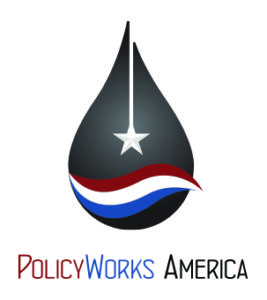Lobbying/Government Relations for Private Business 101 — Better Late than Never!
Part 2 of 2. To read Part 1, click here.
The PolicySmith admits to advancing age, its tripwires and the widening of cracks for the important and sundry to drop through. While rummaging through this blog’s dustbin, lo and behold an unpublished post appeared! In 2017 this space was attempting to shine a light on the previous full-time pursuits of this writer. Misconceptions (and vitriol) abound when it comes to “lobbyists” — or as practitioners prefer — Government Relations professionals. It’s not unusual when asked “What do you do for XYZ company?”, for the GR pro to cut to the chase and respond, “I talk to the people no one else wants to talk to.”
In Part I this followup was promised approximately five years ago. So its references are five years past, and it’s worth noting nary a single soul pointed out that the promise was unkept. That will humble a scribbler as will nothing else. So to keep a five year old promise, here is Part II. As for the aging and its ills, a blog post will follow, possibly in fewer than five years.
__________________
Those who engage government on behalf of their employer are in the disaster prevention business. The key to longevity is building credibility brick by brick. Deceive a legislator or staffer and you’re history. Knowing likely outcomes from past experience, the ability to recall and explain them so that even a congressman or a staffer can understand is the currency of GR pros.
It’s not that the average Congressman or Senator is lacking basic intelligence (though some do), it’s that they’re actually spread quite thin. From constituent services, to legislation, to fund raising to various caucus meetings, travel nearly every week, congressional fact-finding tours to dangerous locales, to defending votes and so forth, there is precious little time for in-depth research on the myriad complex issues confronting legislators.
The PolicySmith was often asked how it is that year after year a Congressman or Senator’s staff invite a lobbyist to review legislation. Committee staff seeks industry comments on draft legislation, legal staff at Interior and other agencies often made similar requests.
The answer is disarming in its simplicity – when the lobbyist has been accurate in past analyses of outcomes, he or she will be asked for insights going forward. Legislators and staff typically have knowledge spanning a broad spectrum of issues, but any degree of depth is rare. Society and commerce have become too complex for an individual legislator even with full staff to comprehend all that must be considered.
Achieving real progress in legislating means observing the law of unintended consequences. Health care has been front and center since consideration of Obamacare began in 2009. There are a number of physicians in Congress who provide firsthand experience and insight. Energy and the environmental considerations around development have also been a major focus. Only two congressmen in recent memory have oil and gas business experience – Steve Pearce of New Mexico and Trent Franks of Arizona. Both serve on key House committees. Only two of 435 and one of 100 are pretty long odds for objective legislation and rule-making. The lone Senator is Marsha Blackburn (R-TN).
Typical of a congressional meeting was one with a mountain state representative. Our group told him how and why the Keystone Pipeline was important for the country, and the industry in particular. It meant jobs, exports and access to additional supplies should the country be embargoed ever again. His response was that environmentalists told him that it meant only 20 permanent jobs. We made the case to him that it was thousands of jobs…and by the way…all construction jobs are, by definition, temporary. The light went on when we provided chapter and verse on pipelines planned for oil, natural gas and products, and total employment in the domestic pipeline industry. Add in the dangers of rail and truck transport and their potential for environmental disaster and the pipeline option is quite attractive.
Why trust the entrenched environmental lobby, which trumpets its opposition to pipelines, which in fact makes a comfortable living suing and settling with government? Why even admit that is your “credible” source of information? No matter, really. Lobbyists confront misdirection, those ignoring the irrefutable and positing outright untruths daily. Meetings are sought and held with elected officials who will vigorously oppose vote any oil and gas development, transport and deregulation. It may seem pointless, but it does remove a legislator’s favorite dodge, “They never talk to me.”
It is rare that a Government Relations professional achieves total victory on any issue. The most frequent “victory” is prevention of disaster by successfully stymying the most onerous provisions of new rules or legislation. The outright rollback of Executive Orders and agency rules was rare before the Trump presidency. Today it is commonplace.
A final note on meeting with legislators – some believe the most effective meetings are those held in the home district and outside the Beltway milieu. Contrary to conventional wisdom, such meetings are difficult to schedule – not because congressmen are vacationing or hiding out. Time spent in district or statewide is intensely scheduled and there are few slack moments. The allegations and sneering that they work only 100+ days a year are unwarranted and untrue.
Many GR professionals wish Congress worked only 100 or so days, the less they work the less damage is visited upon the economy and taxpayers. That is key to disaster prevention and success for any industry’s lobbyists, less time in session. The Federal government could take some cues from some state legislatures – in North Dakota the legislature meets once every two years, and in Utah the annual session is less than 45 days…that’s disaster prevention!
Post script — I double-checked the dustbin, file cabinets and storage. There are no other unpublished blogs, except those in my head.
To read Part 1, click here.


[…] To read Part 2, click here. […]